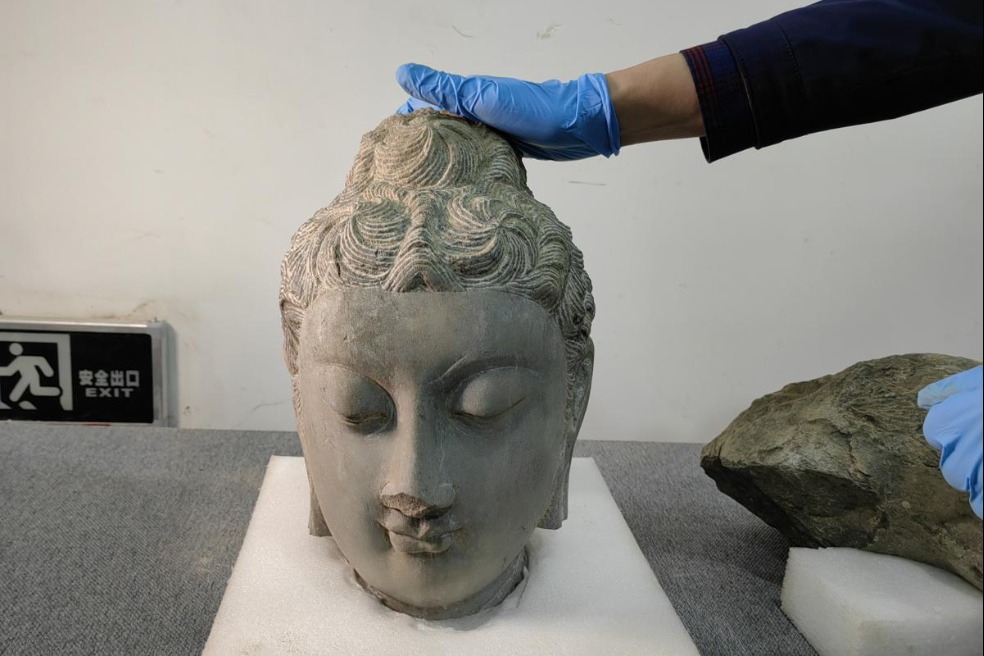Diplomat reiterates opposition to AUKUS nuclear sub pact
By MINLU ZHANG at the United Nations | chinadaily.com.cn | Updated: 2022-08-09 10:28
A senior Chinese diplomat on Monday reiterated China's opposition to nuclear submarine cooperation between the US, Britain and Australia and warned Japan and related countries not to replicate "nuclear sharing" in the Asia-Pacific region.
The Australia-UK-US (AUKUS) trilateral nuclear submarine cooperation and the "nuclear sharing" model in the Asia-Pacific region are two major new issues facing the global nuclear non-proliferation regime, Li Song, China's ambassador for disarmament affairs, told a committee meeting of the Tenth Review Conference of the Parties to the Treaty on the Non-Proliferation of Nuclear Weapons (NPT).
Li said that the US "adheres to the Cold War mentality, obsessed with 'strategic competition among major powers', engages in group politics and camp confrontation, and cobbles together exclusive 'small circles' and 'small groups' to threaten the security of the Asia-Pacific region, which constitutes new shocks and challenges for the global nuclear non-proliferation regime".
Li emphasized that the AUKUS nuclear submarine cooperation is an unprecedented act of nuclear proliferation. The US and the UK, as depositors of the NPT, decided to transfer nuclear submarine power reactors and tons of weapons-grade high-enriched uranium to non-nuclear-weapon states, posing a serious proliferation risk. AUKUS has fully exposed their "double standards", said Li.
The trilateral nuclear submarine cooperation provokes camp confrontation, stimulates the arms race and causes serious damage to the Nuclear-Weapon-Free Zone in the South Pacific and Southeast, said Li. "It is a blatant violation of the purpose and purpose of NPT," he said.
"The international community is concerned about those trends, and people from many countries have raised serious doubts. China urges the three countries to revoke the decision to carry out the nuclear submarine cooperation and do something to maintain peace and stability in the Asia-Pacific region," he said.
Li said that the "nuclear sharing" model also counters the purposes and principles of NPT and is itself nuclear proliferation.
"China urges the US to abolish the 'nuclear sharing' policy and withdraw all nuclear weapons deployed abroad," Li said.
Li noticed that in Japan's report to the ongoing Review Conference, the "three non-nuclear principles" mentioned in previous reports have been deleted.
"Does this mean that Japan's nuclear non-proliferation policy has undergone a major adjustment?" said Li. He asked Japan to give a clear explanation of it.
Li also expressed his concerns over the issue of Japan's decision to discharge nuclear-contaminated water into the sea.
He pointed out that Japan's discharge of the water from the Fukushima nuclear power plant accident "has a potential impact on the marine ecological environment, food safety and human health that cannot be ignored".
"The Japanese government's unilateral decision to discharge nuclear-contaminated water into the ocean is purely out of economic cost considerations," said Li. "It has not exhausted safe disposal methods, it has not fully consulted with neighboring countries and international agencies, and it is not responsible nor ethical to transfer risks to the international community out of selfishness," said Li.
"Not only the Japanese people are strongly dissatisfied, but China, South Korea, Russia and Pacific island countries also expressed concern," he said.
Li said that the international community is highly concerned about the legitimacy of Japan's discharge plan, the reliability of data, the effectiveness of purification devices and the uncertainty of environmental impact.
The International Atomic Energy Agency (IAEA) Task Force's assessment of Japan's plan has not yet come to a final conclusion, and the task force has put forward many suggestions for improvement, Li said.
"Regrettably, Japan turned a deaf ear to this, continued to preparations for the discharge plan, and hastily approved the plan. This attempt to create a fait accompli is not the act of a responsible country," Li said.
"The Japanese side should seriously respond to the concerns of the international community, return to the track of full consultation with stakeholders and relevant international institutions, and stop forcing the plan to discharge nuclear-contaminated water into the sea," said Li.
Li said the Japanese side should ensure that the nuclear-contaminated water is disposed of in an open, transparent, scientific and safe manner, including considering alternatives to discharge the water, and subject to strict supervision by the IAEA. "This is the touchstone to test whether Japan can effectively fulfill its international responsibilities," he said.
























